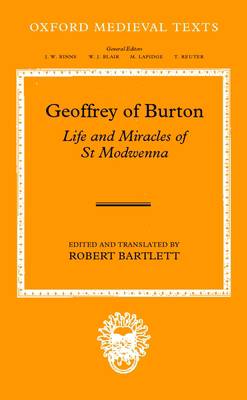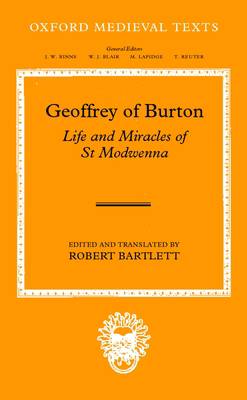
- Afhalen na 1 uur in een winkel met voorraad
- Gratis thuislevering in België vanaf € 30
- Ruim aanbod met 7 miljoen producten
- Afhalen na 1 uur in een winkel met voorraad
- Gratis thuislevering in België vanaf € 30
- Ruim aanbod met 7 miljoen producten
Zoeken
Omschrijving
Geoffrey of Burton's Life and Miracles of St Modwenna (BHL 2097) is among the most substantial pieces of twelfth-century English hagiographic writing not previously to have appeared in print. It was produced by the abbot of Burton, where Modwenna's bones supposedly lay, in the period 1118-50, and consists of two parts of unequal length: the vita or Life proper, and the collection of miracle stories. The first part, forming about four-fifths of the total text, was based on an earlier Life by the Irish author Conchubranus, which Geoffrey revised and modified in style and substance. His creative rewriting of the Life throws much light on the Latinity, religious attitudes, and historical consciousness of an early twelfth-century Benedictine author. The second and shorter part of the text is made up of accounts of the miraculous cures and punishments connected with Modwenna's shrine at Burton. Geoffrey composed these stories on the basis of oral traditions and his own experience and they constitute a valuable source for the social and religious history of this part of England in the Norman period.
Specificaties
Betrokkenen
- Auteur(s):
- Uitgeverij:
Inhoud
- Aantal bladzijden:
- 304
- Taal:
- Engels
- Reeks:
Eigenschappen
- Productcode (EAN):
- 9780198206064
- Verschijningsdatum:
- 23/05/2002
- Uitvoering:
- Hardcover
- Formaat:
- Genaaid
- Afmetingen:
- 140 mm x 216 mm
- Gewicht:
- 535 g

Alleen bij Standaard Boekhandel
+ 773 punten op je klantenkaart van Standaard Boekhandel
Beoordelingen
We publiceren alleen reviews die voldoen aan de voorwaarden voor reviews. Bekijk onze voorwaarden voor reviews.











